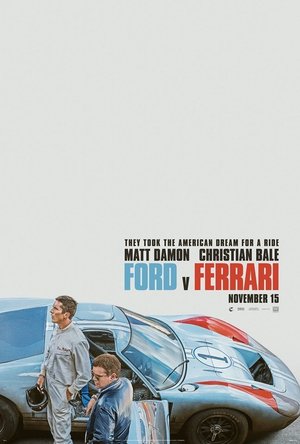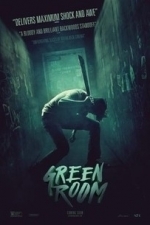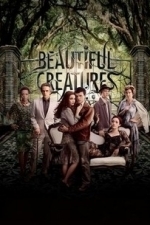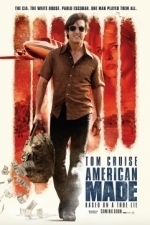Darren (1599 KP) rated Ford v Ferrari (aka Le Mans '66) (2019) in Movies
Nov 7, 2019
Performances – Christian Bale and Matt Damon are both fantastic proving to everyone why they are considered two of the best in the business today, they have great individual moments as well as banter between them. Outside of the two big names, nobody does get to reach their level and everybody is a joy to watch in their roles.
Story – The story here follows Henry Ford II desire to beat Enzo Ferrari in the Le Mans 24-hour race, we see him hire a former winner turned designer to build his car, as the two sides do battle to get Ken Miles behind the wheel, in an attempt to make history. This does show how an American decided he would rather push the limits of his bank than improve the product he was making as we see how Ford changed the racing world that Ferrari had been dominating for decades and how faith in a driver is often more important that having the fastest car. The story is told over a couple of years, we get to see the important turns in the battle between Carroll and Ford’s executives to get the best driver behind the wheel, before letting us just sit back and enjoy the races. It could have had a little bit of the story chopped down to save some time though.
Action/Biopic/Sport – The action mixes with the sport wonderfully to give us edge of the seat race moments that will be the highlight of the film, while the biopic side of the film seems to focus more on the car side of things only, while Ken does have a family, we really don’t learn anything else about Carroll outside of his work.
Settings – The film recreates the iconic race track perfectly and shows us how the time relevant cars were used in nearly every scene of the film, on and off the track.
Scene of the Movie – Le Mans Race.
That Moment That Annoyed Me – Give us subtitles for the Ferrari scenes.
Final Thoughts – This is a high speed biopic that doesn’t let you breath through most of the action involved, it has brilliant performances from the whole cast and is a must watch for any motor sports fans.
Overall: Motor Sports Fans Must Watch.
Gareth von Kallenbach (980 KP) rated Green Room (2015) in Movies
Aug 6, 2019
It’s to the point now where if the A24 logo is at the front of a flick, chances are I’m handing over my hard-earned cash. Enemy, Locke, A Most Violent Year, Ex Machina, Slow West – they’ve been distributing some of my favorite films from the last few years and are fast becoming a powerhouse for indie movies, not unlike Focus Features a little more than a decade ago. Unfortunately, this means I set my expectations a little too high on my way into Green Room, which was not hard to do when you combine A24’s track record with the emerging talent of writer/director Jeremy Saulnier. Blue Ruin, his second feature, was the surprise indie hit of 2013. Expertly crafted and deliberately paced, it harkened back to 70’s-style bleak and gritty filmmaking. Green Room also features some of the DNA that made Blue Ruin great, those quite moments of high-tension leading into heart-stopping explosions of extreme violence are present and accounted for, but a thinner plot and characters who are severely underdeveloped show that this story, to its detriment, was in much more of a rush to get where it was going than its predecessor was.
Green Room’s major selling point is of course, Patrick Stewart. Adding one part Cameron Alexander (Stacy Keach’s character from American History X) to one part Walter White/Heisenberg, his performance will undoubtedly go down as one of the greatest departures of our time. Having said that, and believe me when I say I’m loathe to fly in the face of what an exceptional casting choice this was, he is frustratingly underutilized. It does speak to what an unrivaled talent he is when he can build most of his menace from the other side of a locked door, but regardless of how solid the performance is, his presence is merely a set-piece. A role with this little screen time rivals Anthony Hopkins in The Silence of the Lambs (they both had what probably amounted to about 15 minutes of screen time, or less), but I’m certain Stewart’s won’t leave as lasting an impression. To be blunt, if you’re queuing up just for him, you may come away disappointed.
The flip side to this comes about through Imogen Poots as Amber, friend to the murder victim and unfortunate enough to get trapped backstage with the band. Much of the best dialogue, along with some incredible moments of jaw-dropping spontaneity, comes her way and it’s her deadpan delivery that steals the show. Though we are supposed to root for the band, it was her cynical “inside man” that drew me further into their nightmare situation and kept me hoping that she might be the one to survive and give the skinheads the brutal justice they deserved.
For now, I’m sticking to my guns and giving Green Room just half marks, but I look forward to a second viewing at home in a few months, where I’m certain my opinion of it will improve, due to my expectations being more aligned and the foreknowledge that this is simple and standard survival horror fare…that just happens to feature Picard as a neo-Nazi.
Gareth von Kallenbach (980 KP) rated Beautiful Creatures (2013) in Movies
Aug 7, 2019
With the beginning of the first day of school a newcomer named Lena Duchannes (Alice Englert) seems to be an outcast because of her families history. Capturing the attention of Ethan he becomes more and more intrigued with her, despite the awful things that the other classmates are saying about her. Lena is the niece of Macon Ravenwood (Jeremy Irons), the owner of the one and only mysterious Gothic Ravenwood Manor. Lena has uncontrollable powers proving that some of what her classmates have been saying is true. Lena has until her sixteenth birthday to undergo the Claiming, a process that throughout the years makes a caster go to the light side or the dark side. The film also features an allstar cast such as: Alden Ehrenreich, (“Tetro”), Emmy Rossum, Thomas Mann, Emma Thompson, Rounding out the cast are Eileen Atkins, Margo Martindale, Zoey Deutch, Tiffany Boone, Rachel Brosnahan, Kyle Gallner, Pruitt Taylor Vince and Sam Gilroy.
The film Beautiful Creatures is a supernatural love story with some of the same ideas and themes as most of these supernatural teen movies based off of best selling novels. However, Beautiful Creatures was a refreshing take on the story of two young lovers, one who is human and the other who is a supernatural being. The scenery and use of the deep southern backdrops added to the mystery of the story. I have not read the book though I plan to, I am unable to comment on how close the movie was to the book. The special effects in the film were not overdone or out of place and were appropriate to each specific scene. Some comedic relief is found throughout the film and is not out of place. The flow of the story is also flawless including the music used for the soundtrack.
This film has been rated PG-13 for violence, scary images and some sexual material. I would recommend this to audiences of a variety of ages from young teen to older adult. Yes this film may have some similarities to other teen/supernatural films but all in all it is a film I definitely would recommend to our readers and I can’t wait for the second installment.

The Holy Bible - King James Version
Book and Reference
App
The Holy Bible - King James Version is a beautiful, easy to use, full featured Tecarta Bible app...

Tecarta Bible
Book and Reference
App
The Tecarta Bible is a beautiful, easy to use, full featured Bible app designed for quick...

iBird Ultimate Guide to Birds
Reference and Education
App
iBird Ultimate is our most birding advanced app. It comes with the two advanced features built in:...

Westpac Banking for iPad
Finance and Business
App
Westpac Banking for iPad makes banking as simple as a tap and a swipe. This app is for Australian...

DioDict 3 English – Vietnamese Dictionary
Reference and Education
App
DioDict English-Vietnamese Dictionary • Based on the English dictionary by Lac Viet, the most...

Frequent Flyer Mileage Tracker and Flight Log
Travel and Utilities
App
Copyright 2010 by Dash Technologies (screens/graphics/functionality) Please view our other apps...
Bob Mann (459 KP) rated American Made (2017) in Movies
Sep 29, 2021
A quick stop in Nicaragua to pick up some paperwork from Noriega.
“Based on a True Story” this is a biopic on the life of Barry Seal, a hot shot ‘maverick’ (pun intended) TWA pilot who gets drawn into a bizarre but highly lucrative spiral of gun- and drug-running to and from Central America at the behest of a CIA operative Monty Schafer (Domhnall Gleeson). All this is completely mystifying to Barry’s wife Lucy (Sarah Wright) who is, at least not initially, allowed to be ‘in’ on the covert activities.
Flying high over Latin America.
The film is a roller-coaster ride of unbelievable action from beginning to end. In the same manner as you might have thought “that SURELY can’t be true” when watching Spielberg’s “Catch Me If You Can”, this thought constantly flits through your mind. At each turn Seal can’t believe his luck, and Cruise brilliantly portrays the wide-eyed astonishment required. This is a role made for him.
Also delivering his best performance in years is Domhnall Gleeson (“Ex Machina“, “Star Wars: The Force Awakens“) as the CIA man with the (whacky) plan. Large chunks of the film are powered by his manic grin.
Domhnall Gleeson as the CIA man with a sense of Contra-rhythm.
As an actress, Sarah Wright is new to me but as well as being just stunningly photogenic she works with Cruise really well (despite being 20 years his junior – not wanting to be ageist, but this is the second Cruise film in a row I’ve pointed that out!)). Wright also gets my honourary award for the best airplane sex scene this decade!
“Time to pack honey”. Seal (Cruise) delivering a midnight surprise to wife Lucy (Sarah Wright) – and not in a good way.
Written by Gary Spinelli (this being only his second feature) the script is full of wit and panache and – while almost certainly (judging from wiki) stretches the truth as far as Seal’s cash-storage facilities – never completely over-eggs the pudding.
Doug Liman (“Jason Bourne“, “Edge of Tomorrow“) directs brilliantly, giving space among the action for enough character development to make you invest in what happens to the players. The 80’s setting is lovingly crafted with a garish colour-palette with well-chosen documentary video inserts of Carter, Reagan, Oliver Stone, George Bush and others. It also takes really chutzpah to direct a film that (unless I missed it) had neither a title nor any credits until the end.
The real Barry Seal.
The only vaguely negative view I had about this film is that it quietly glosses over the huge pain, death and suffering that the smuggled drugs will be causing to thousands of Americans under the covers. And this mildly guilty thought lingers with you after the lights come up to slightly – just slightly – take the edge off the fun.
Stylish, thrilling, moving and enormously funny in places, this is action cinema at its best. A must see film.



